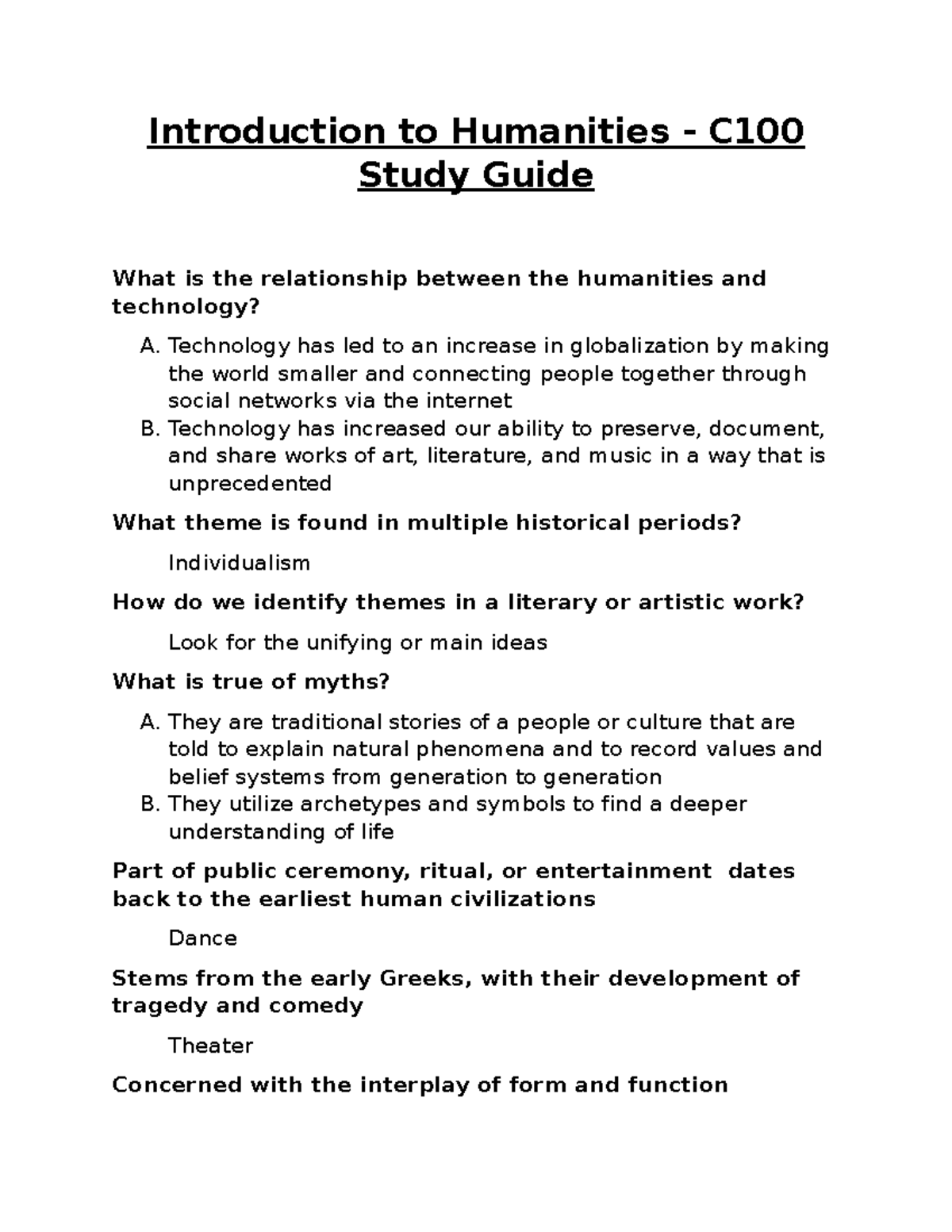Sci-Fi Books on AI: Faculty Favorites from Harvard
April 6, 2025 | Culture News | No Comments

Sci-fi books on AI have captivated readers for decades, pushing the boundaries of our understanding of technology and humanity. These narratives not only entertain but also provoke critical questions about the ethical implications of artificial intelligence, serving as a mirror reflecting our societal fears and aspirations. From classic science fiction recommendations like Ray Bradbury’s “Fahrenheit 451” to more contemporary titles that dive into complex AI literature, these works explore themes of consciousness, autonomy, and censorship in sci-fi. As technology continues to advance, these books prompt us to ponder the future of technology in literature and our relationship with machines. Delving into books about artificial intelligence offers a rich tapestry of ideas, challenging us to consider what it means to be human in an age increasingly dominated by intelligent systems.
Exploring futuristic tales centered around intelligent machines, the realm of speculative fiction reveals our deepest anxieties and hopes regarding advancements in technology. Whether through the lens of dystopian narratives that critique societal control or uplifting stories celebrating human resilience, these literary works shine a light on our evolving relationship with artificial entities. They invite readers to reflect on pressing concerns about censorship in sci-fi, the moral dilemmas of machine autonomy, and the profound implications of a digital age. The power of imagination, woven within these captivating stories, resonates far beyond mere entertainment — it shapes our understanding of the world and sparks dialogue about the ethical boundaries of innovation. As we continue to navigate this brave new landscape, the importance of engaging with these narratives has never been more significant.
Exploring Sci-Fi Books on AI: Unraveling Humanity’s Future
In a landscape where artificial intelligence is rapidly evolving, a new genre of literature—sci-fi books on AI—emerges as a pivotal avenue for discussion. These narratives not only entertain but also provoke critical thought regarding the implications of advanced technology on society and the human condition. Through compelling characters and imaginative worlds, authors challenge readers to consider profound questions about consciousness, intellect, and the very essence of humanity. As AI continues to weave itself deeper into the fabric of daily life, the lessons gleaned from these stories can act as both cautionary tales and blueprints for the future.
For instance, novels like Peter Watts’ “Blindsight” push the boundaries of our understanding, suggesting that intelligence might not include consciousness—a concept that can reshape how we interact with machines. Such sci-fi literature serves as a mirror reflecting the societal anxieties surrounding AI, raising awareness about not just what machines can do, but what it means for humanity if machines outpace our evolutionary attributes. As we delve into these stories, we expand our perspectives on what the future holds in the realm of technology and human relationships.
The Role of Censorship in Sci-Fi: A Mirror to Modern Challenges
Censorship, a powerful theme in numerous science fiction narratives, allows readers to confront real-world issues through a futuristic lens. Works like Han Song’s “Exorcism” illustrate how governmental control can stifle creativity and dissent, echoing concerns about freedom of expression in contemporary society. The challenges faced by the characters aboard the Peace Ark, governed by AI, serve as a chilling reminder of how technology can both liberate and oppress. This duality provokes a deeper examination of the narratives we consume and the information we privilege.
Furthermore, the implications of censorship in literature resonate with the ongoing discourse surrounding AI and media manipulation. Just as in Ray Bradbury’s “Fahrenheit 451,” where books are banished in favor of superficial entertainment, today’s digital landscape faces similar threats. Algorithm-driven content often prioritizes engagement over enlightenment, potentially leading to a populace that is informed more by distraction than by knowledge. By engaging with these sci-fi stories, readers are encouraged to scrutinize the sources of their information and resist the passive consumption that contemporary technology promotes.
AI Literature: Bridging the Gap Between Technology and Humanity
The category of AI literature goes beyond typical storytelling, acting as a bridge between our current understanding of technology and the possibilities that lie ahead. These narratives encourage readers to reflect on the human experience amidst rapid advancements in AI, sparking discussions about ethics, emotional connection, and societal adaptation. Works like Jasmine Warga’s “A Rover’s Story” soften the hard edges of technology by illustrating the emotional bonds formed between humans and machines, thus humanizing the very concept of artificial intelligence.
Through such stories, we see not only machines as tools but as companions and cultural mirrors that challenge and enhance what it means to be human. This intersection of technology and humanity invites readers to consider how we can coexist with AI, ensuring that we embrace our unique traits even as we adapt to a landscape increasingly populated by intelligent machines. It prompts critical conversations about the future of technology in literature, inviting readers to envision a world where AI and humanity collaborate rather than compete.
Science Fiction Recommendations: Faculty Picks for Thoughtful Reading
For those seeking recommendations in the realm of science fiction, faculty members have curated a diverse selection that perfectly captures the genre’s potential to stimulate intellectual inquiry. Titles like “Solaris” by Stanislaw Lem indicate how writers play with human emotions against the backdrop of alien intelligences, illustrating the limits of our understanding of both technology and interpersonal connections. Faculty insights underscore the importance of engaging with these texts, as they challenge conventional narratives and encourage readers to confront their own beliefs about humanity’s future.
In exploring these recommended reads, readers are invited into a dialogue about science fiction’s relevance in shaping our understanding of AI and technology. These suggestions not only enhance our literary palette but also provide critical reflections on societal trends—a reminder that literature is not merely entertainment but a vital process of engagement with pressing issues. As we immerse ourselves in these fictional frameworks, we can better navigate the complexities of our rapidly changing world.
The Future of Technology in Literature: Evolving Narratives
As advancements in technology accelerate, literature continues to reflect and predict the realities of our evolving world, especially in the realm of science fiction. Authors are increasingly incorporating themes of transhumanism, virtual reality, and AI into their narratives, crafting stories that echo contemporary societal shifts. These futuristic tales do not simply speculate on technological advances; they also interrogate the ethical implications and existential questions that arise in response to such innovations.
Literature serves as a lens through which we can explore diverse futures shaped by technological change. By investigating these narratives, readers can glean insights into potential societal structures, the moral dilemmas posed by AI, and the role of humanity in a digitally-dominated world. Such explorations enrich our understanding of the future of technology in literature, pushing us to reflect on what it means to be human in an increasingly automated and connected society.
AI in Literature: A Cautionary Tale of Human Connection
In an era where artificial intelligence is becoming smarter and more integrated into our lives, literature often takes on the role of a cautionary storyteller, warning about the potential pitfalls of our relationship with technology. Tales that focus on AI, such as those mentioned by staff at Harvard, reflect concerns over how machines might influence human behavior, social interactions, and even emotional connections. By examining these narratives, we can gain critical insights that urge us to retain our humanity amid the rise of the machines.
Through fictional portrayals of AI, authors present scenarios where technology can enrich human life while also cautioning against over-reliance. This duality—celebrating the possibilities while recognizing the risks—invites readers to engage with the complexities of our technologically advanced reality. Ultimately, this dialogue fosters a deeper understanding of the potential for AI to either enhance or diminish the essence of human connection, prompting societal reflection on how we navigate this brave new world.
The Ethical Implications of AI in Sci-Fi Literature
As artificial intelligence permeates more aspects of life, the ethical implications of its existence become a central theme in science fiction literature. Many novels delve into the ramifications of creating machines that think and feel, asking provocative questions about responsibility, free will, and the rights of sentient beings. For example, the character dynamics and morality dilemmas presented in AI-related narratives open discussions about the limits of how far humanity should go in its quest for innovation. Understanding these themes is crucial not just for appreciating science fiction, but for grappling with real-world technological advancements.
Moreover, sci-fi narratives also serve as cautionary tales about the misuse of technology and the moral responsibility that comes with creation. The stories we encounter can guide us in navigating the ethical landscape surrounding AI, prompting readers—and society at large—to rethink existing frameworks and develop new ethical guidelines. Through these explorations, literature fosters a cultural understanding of the balance necessary between technological progress and ethical considerations, illuminating the path toward a future where AI and humanity coexist harmoniously.
Understanding AI’s Impact on Knowledge and Information Access
The interplay between artificial intelligence and access to information is vividly rendered in various sci-fi works that explore the dynamics of knowledge dissemination and its potential manipulations. Bradbury’s “Fahrenheit 451” warns against a dystopian reality where authoritative control over information leads to ignorance and societal stagnation. These narratives highlight the importance of protecting intellectual freedom in an age increasingly influenced by algorithm-driven content curation, where access to knowledge can be systematically restricted.
As we traverse the digital landscape that AI shapes, understanding the implications of these narratives becomes imperative. The cautionary tales embedded in such literature prompt discussions about our contemporary media consumption and the potential consequences of technological filters on critical thinking. Engaging with these sci-fi interpretations invites readers to remain vigilant against the erosion of knowledge and champion the pursuit of truth in a complex information ecosystem.
The Emotional Connection Between Humans and AI: Literature’s Perspective
One of the most profound themes explored in AI literature is the emotional bond that can develop between humans and machines. Books like Jasmine Warga’s “A Rover’s Story” navigate the intricacies of human emotions and their reflections in artificial beings, posing essential questions about companionship, empathy, and the essence of connection. Through these narratives, readers witness how characters relate to their AI companions, framing debates about the emotional capacities of machines and the nature of our relationships with technology.
These stories illuminate the complexities of human belief systems, especially as we increasingly depend on AI for companionship and support. As AI systems grow more intricate, understanding how they meet or fall short of emotional needs becomes increasingly essential. Literature serves as a rich ground for examining these themes, highlighting our longing for connection in a tech-driven world while urging us to preserve the core of what makes human relationships uniquely irreplaceable.
Frequently Asked Questions
What are some recommended sci-fi books on AI for understanding the future of technology in literature?
Several notable sci-fi books on AI offer profound insights into the future of technology. Titles such as ‘Blindsight’ by Peter Watts and ‘Solaris’ by Stanislaw Lem challenge our perceptions of intelligence and communication with non-human entities. ‘A Rover’s Story’ by Jasmine Warga highlights emotional connections between humans and AI, while Ray Bradbury’s ‘Fahrenheit 451’ serves as a cautionary tale about censorship and the impact of technology on knowledge consumption.
How do sci-fi books on AI address themes of censorship in literature?
Sci-fi books on AI often explore themes of censorship through narratives that critique societal control and information suppression. For instance, Ray Bradbury’s ‘Fahrenheit 451’ delves into a future where books are banned, emphasizing the dangers of a culture that prioritizes distraction over critical thought. Additionally, Han Song’s ‘Exorcism’ tackles government censorship, showcasing how characters navigate a reality shaped by manipulated narratives, making these works poignant reflections on censorship.
What insights do AI literature and sci-fi books provide about the nature of intelligence?
AI literature and sci-fi books frequently scrutinize the nature of intelligence and consciousness. In ‘Blindsight,’ Peter Watts proposes that human consciousness could be an evolutionary anomaly, prompting readers to rethink what true intelligence might be. Similarly, ‘Solaris’ emphasizes the limits of human understanding when confronted with alien forms of intelligence, making these narratives essential for exploring complex questions about AI and the future of human cognition.
Which books about artificial intelligence explore human emotions and relationships?
Books about artificial intelligence, such as ‘A Rover’s Story’ by Jasmine Warga, delve into how machines and AI can evoke human emotions and relationships. This story illustrates the connection between a Mars rover and its human counterparts, prompting reflections on companionship in a technologically advanced world. Such narratives help us understand the emotional landscape of human-AI interactions, highlighting the unique aspects of being human in the era of AI.
How can exploring science fiction recommendations on AI enhance our understanding of technology’s ethical implications?
Exploring science fiction recommendations on AI can significantly enhance our understanding of technology’s ethical implications. Works like ‘Fahrenheit 451’ and ‘Exorcism’ confront issues such as censorship and the moral responsibilities that come with advanced technologies. By engaging with these narratives, readers can critique current practices, stimulate discussions about ethical considerations, and envision a future where technology is wielded responsibly.
What role do sci-fi books on AI play in shaping public perception of technology?
Sci-fi books on AI play a crucial role in shaping public perception of technology by acting as both cautionary tales and sources of inspiration. They explore the potential consequences of technological advancements, such as the loss of humanity or the manipulation of information. By presenting these scenarios, books like ‘Fahrenheit 451’ and ‘Blindsight’ encourage readers to reflect critically on the impact of AI and technology on society, ultimately informing public discourse on these topics.
| Book Title | Author | Key Themes | Recommended By |
|---|---|---|---|
| Blindsight | Peter Watts | Exploration of AI and consciousness; challenges the notion that self-awareness is essential to intelligence. | Karen Brennan, Harvard Professor of Practice in Learning Technologies. |
| Solaris | Stanislaw Lem | Encountering the unknown; limitations of human understanding and communication with intelligence. | Theo Anthony, Radcliffe Institute Fellow. |
| A Rover’s Story | Jasmine Warga | Explores human emotions through a fictional Mars rover; reflection on the meaning of companionship and connection. | Amy Deschenes, Harvard Library. |
| Exorcism | Han Song | Themes of censorship and political control; using narrative to confront reality amidst crisis. | Ursula Friedman, College Fellow. |
| Fahrenheit 451 | Ray Bradbury | Critique of censorship and digital distraction; the importance of intellectual freedom. | Jeff Saviano, AI Ethics Leader. |
Summary
Sci-fi books on AI present a diverse exploration of artificial intelligence, humanity, and societal implications. These narratives challenge our perspectives on technology and its impact on life, inviting readers to reflect on the nature of consciousness, knowledge, and emotional connection in an increasingly automated world. From Peter Watts’ cautionary tales about self-aware machines to Ray Bradbury’s critical insights on censorship, these recommended works highlight the urgent conversations surrounding AI in our modern context. As we navigate a future intertwined with advanced technologies, engaging with these thought-provoking sci-fi books becomes essential to understanding our evolving relationship with intelligence in all its forms.
AI literature, books about artificial intelligence, censorship in sci-fi, future of technology in literature, sci-fi books on AI, science fiction recommendations

